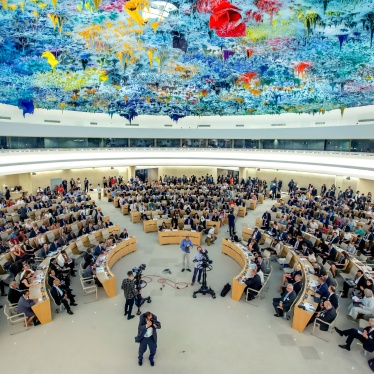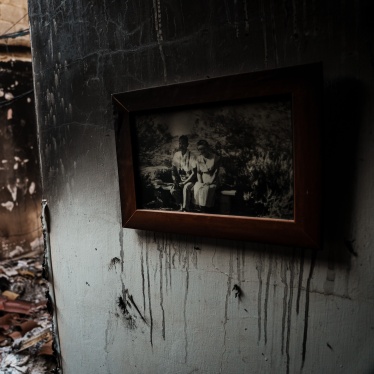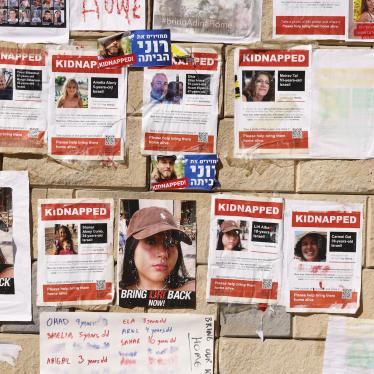Dear Sir/Madam,
As you are aware, the Independent Expert on Sudan issued his report to the Human Rights Council’s 24th session on the situation in Sudan, on September 10, 2013.We have read the report carefully and would like to share with you some concerns that we would urge your delegation to keep in mind in the course of negotiations of a follow up resolution on the human rights situation in Sudan.
We are are concerned that the report of the Independent Expert portrays small steps taken by the Government of Sudan on legislative and institutional matters as signs of progress. In particular the expert's view that "the Government has made progress in putting in place necessary legislations and institutional mechanisms for improving the situation of human rights in the country" refers merely to the government’s promise to retain bill of rights provisions in the current Interim National Constitution (INC) in a permanent constitution, which has yet to be adopted. The only other two indicators referenced by the expert are the adoption of a UPR implementation plan and a ten year human rights plan of action – which is still in bullet point form (a copy of this plan of action is attached for your consideration).
The disappointing reality is that to date neither the adoption of a plan to implement UPR recommendations, nor the establishment of various bodies such as the Advisory Council on Human Rights, the National Commission for Human Rights and other commissions to promote human rights, nor the adoption of a 10-year action plan for human rights, have led to changes to laws, policies, or practices that violate the rights of Sudanese people.
In addition to over-emphasizing technical and bureaucratic plans, the report downplays the continuing, serious violations and repression of basic rights across Sudan. For example, the expert did reference reports of continued indiscriminate aerial bombings of civilian areas in Darfur, Southern Kordofan and Blue Nile, but did not reflect them prominently in the report. The expert failed to include a recommendation to the government of Sudan to immediately stop this indiscriminate bombing on civilians in Darfur, Blue Nile and South Kordofan which has killed hundreds of women, men, and children. This reprehensible practice, for which the Sudanese government is directly responsible, violates basic principles of international humanitarian and human rights law and should be a primary concern for the Independent Expert.
The report did not make clear the government’s role in Darfur’s complex conflict dynamics. While it described “tribal clashes” in Darfur, it failed to note that at best Sudan is failing to protect civilians and at worst it is allowing its security forces to participate in killing civilians. Human Rights Watch research shows Ali Kosheib, a known former militia leader, participated in attacks on civilians in ethnic Salamat villages in Central Darfur in April 2013 in his capacity as a commander in the government’s Central Reserve Police. Kosheib, a known former militia leader, is wanted by the International Criminal Court for crimes in Darfur in 2005.
Moreover, the report did not accurately reflect the continued use by security forces of violence to break up peaceful protests, or the well-established practice of stifling dissent by arbitrarily detaining people with real or perceived links to rebel groups or their continued use of torture and ill-treatment to exact confessions from detainees. The 20-page report included only a paragraph listing some examples of arbitrary arrests, although it is a long-standing and entrenched tactic of repression.
Once more, we urge member states of the Human Rights Council not to overlook the gravity of the human rights situation in Sudan, to condemn violations of international human rights and humanitarian law in Darfur, Southern Kordofan, Northern Kordofan and Blue Nile states and the on-going restrictions of basic civil and political rights across the country.
Taking stock of the limitations of the current approach of the independent expert, we also urge the Human Rights Council to explicitly call for reporting on the on-going violations in Southern Kordofan, Northern Kordofan, Blue Nile, and Darfur, and repression of human rights in other parts of the country, including attacks against human rights defenders, journalists and critics. Given the gravity of the current situation in Sudan, the Human Rights Council should call on the expert to report on these matters at its next session.
Yours sincerely,
Julie de Rivero
Geneva Director
Human Rights Watch





